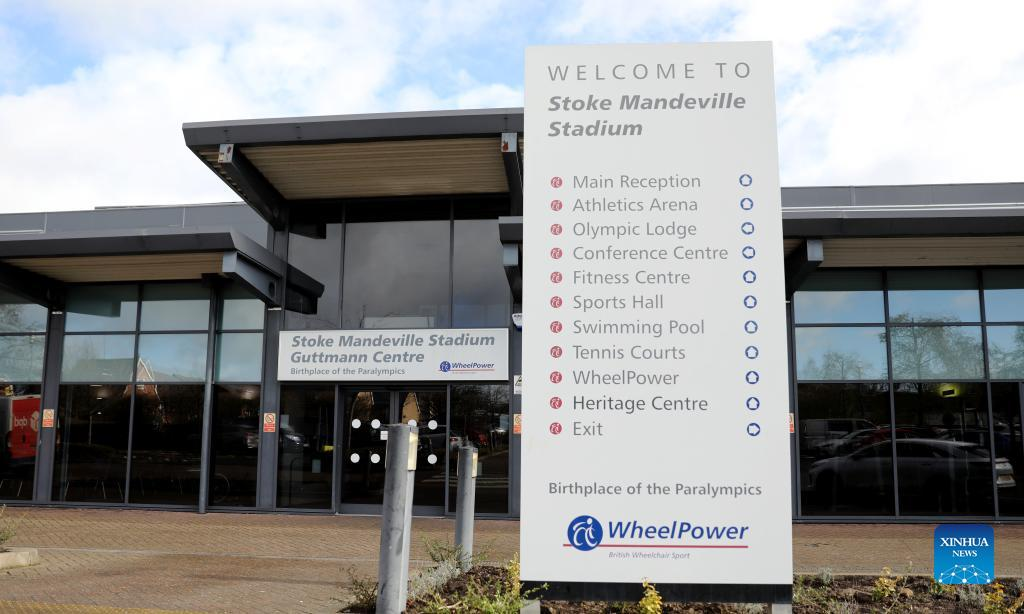
Photo taken on Feb. 24, 2022 shows the entrance of Stock Mandeville Stadium in Stoke Mandeville, Britain. (Xinhua/Li Ying)
LONDON, Feb. 25 (Xinhua) -- "We owe him so much for doing that and really shifting attitudes bit by bit," said Vicky Hope-Walker, CEO of Britain's National Paralympic Heritage Trust while talking about the father of Paralympics Games Ludwig Guttmann.
"It's still a journey, still a lot of attitudes to shift, but he started that and we should be very grateful for that globally."
When 16 paraplegic patients drew their bows on wheelchairs at Stoke Mandeville in England more than 70 years ago, they were just fighting for a better and longer life.
But Professor Guttmann, the German-born British neurologist firmly believed that competitive sports could not only boost their fit but "the most important is from the point of the social reintegration of the paralyzed into society".
Photo taken on Feb. 24, 2022 shows the entrance of Stock Mandeville Stadium in Stoke Mandeville, Britain. (Xinhua/Li Ying)

Photo taken on Feb. 24, 2022 shows a sculpture of Dr. Ludwig Guttmann outside of Stoke Mandeville Hospital in Stoke Mandeville, Britain, Feb. 24, 2022. (Xinhua/Li Ying)
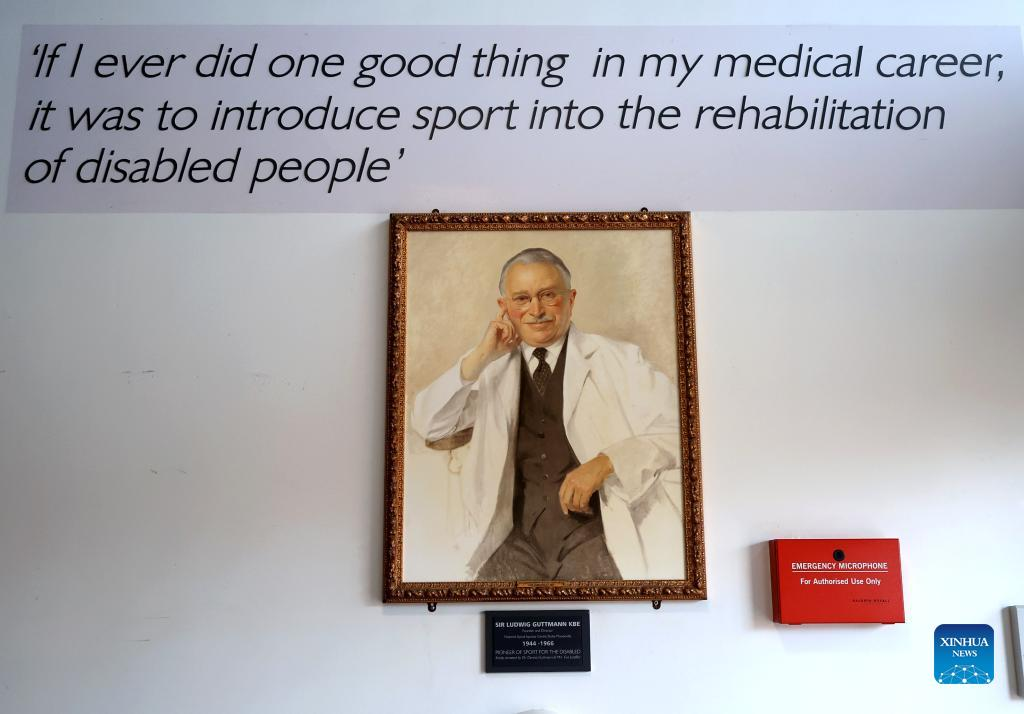
Photo taken on Feb. 24, 2022 shows a painting of Dr. Ludwig Guttmann in Stoke Mandeville Stadium in Stoke Mandeville, Britain, Feb. 24, 2022. (Xinhua/Li Ying)
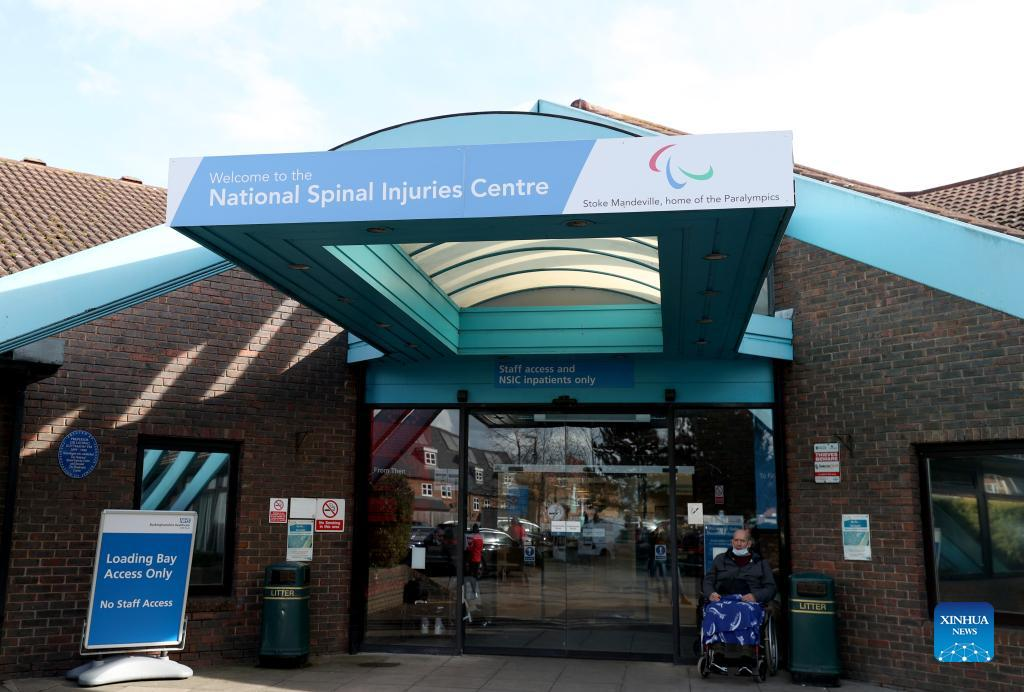
Photo taken on Feb. 24, 2022 shows National Spinal Injuries Center at Stoke Mandeville Hospital in Stoke Mandeville, Britain, Feb. 24, 2022. (Xinhua/Li Ying)

Photo taken on Feb. 24, 2022 shows a painting of Dr. Ludwig Guttmann at National Paralympic Heritage Center in Stoke Mandeville Stadium in Stoke Mandeville, Britain. (Xinhua/Li Ying)
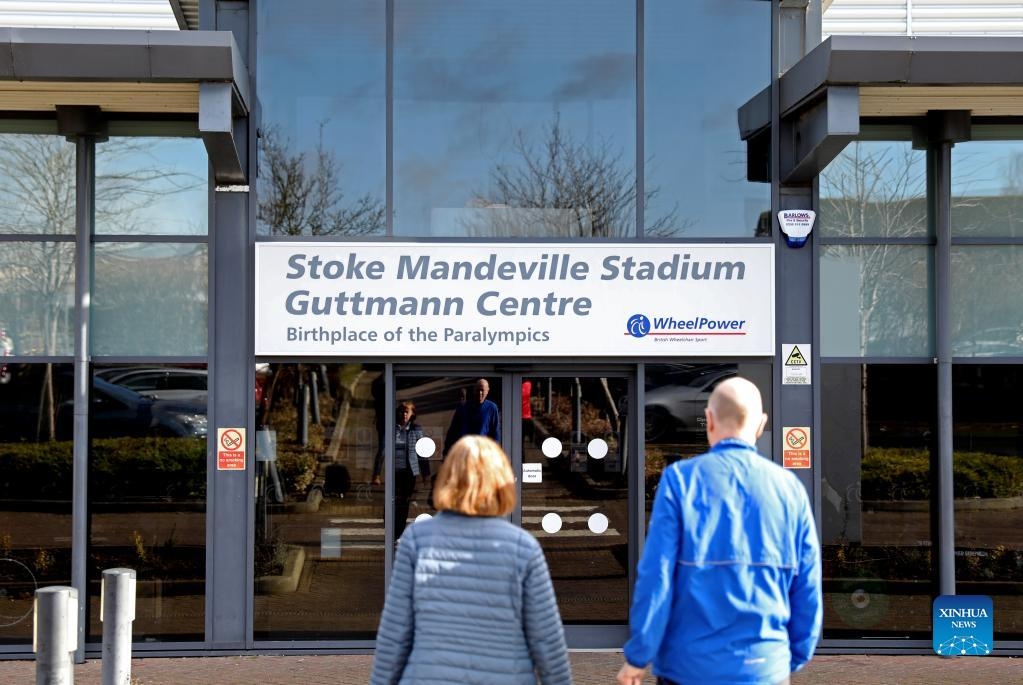
People walk toward Stock Mandeville Stadium in Stoke Mandeville, Britain, Feb. 24, 2022. (Xinhua/Li Ying)
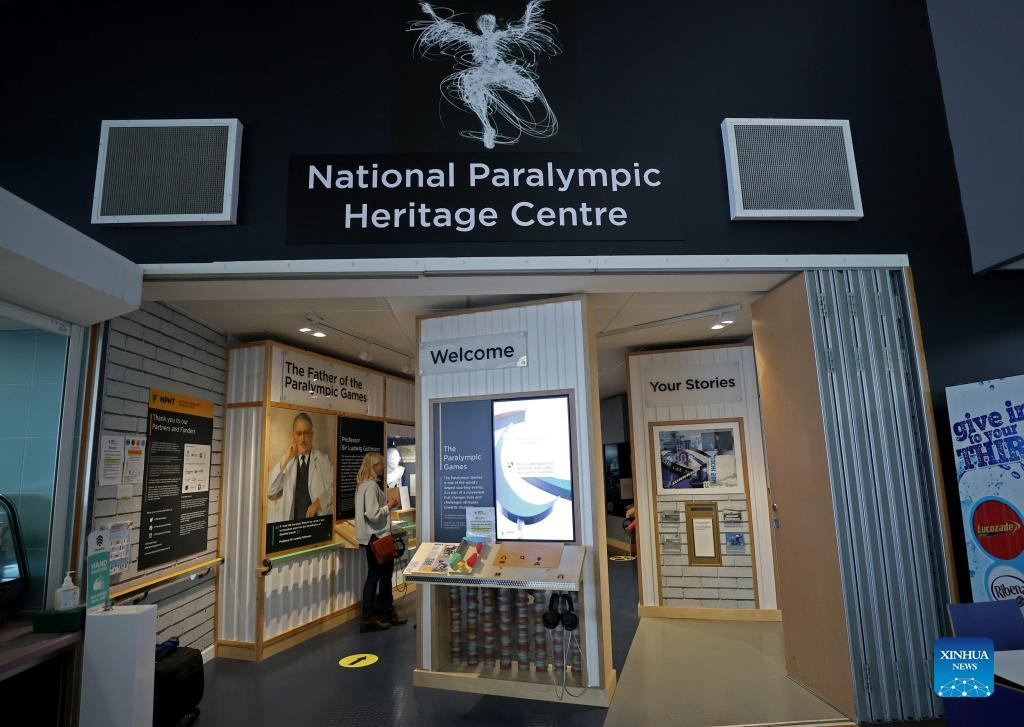
Photo taken on Feb. 24, 2022 shows a view of National Paralympic Heritage Center in Stoke Mandeville Stadium in Stoke Mandeville, Britain. (Xinhua/Li Ying)
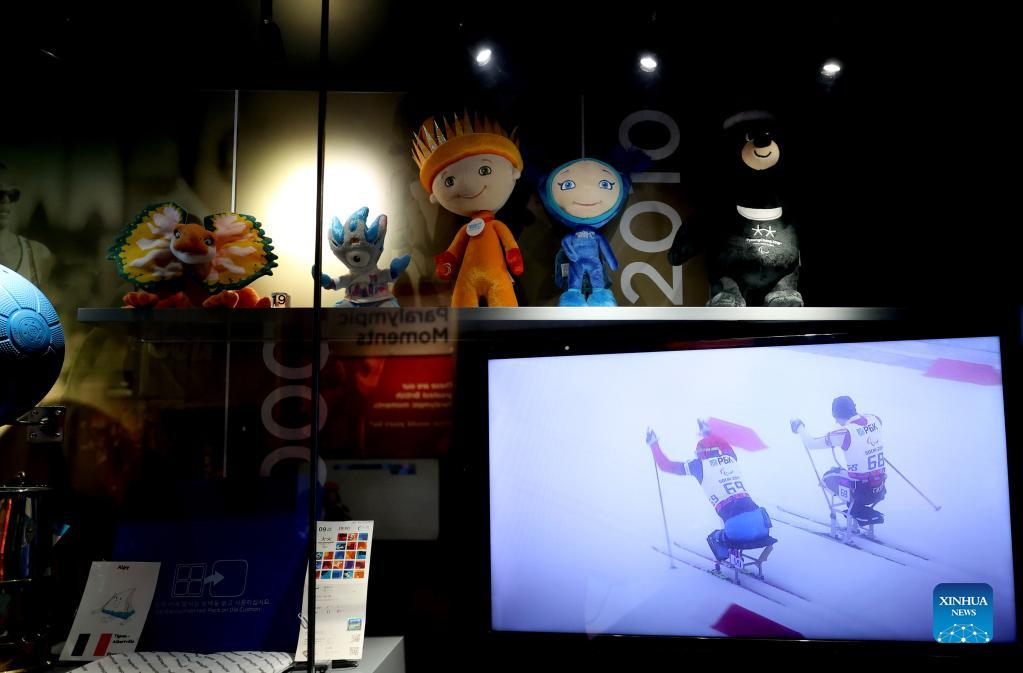
Photo taken on Feb. 24, 2022 shows exhibit items at National Paralympic Heritage Center in Stoke Mandeville Stadium in Stoke Mandeville, Britain. (Xinhua/Li Ying)
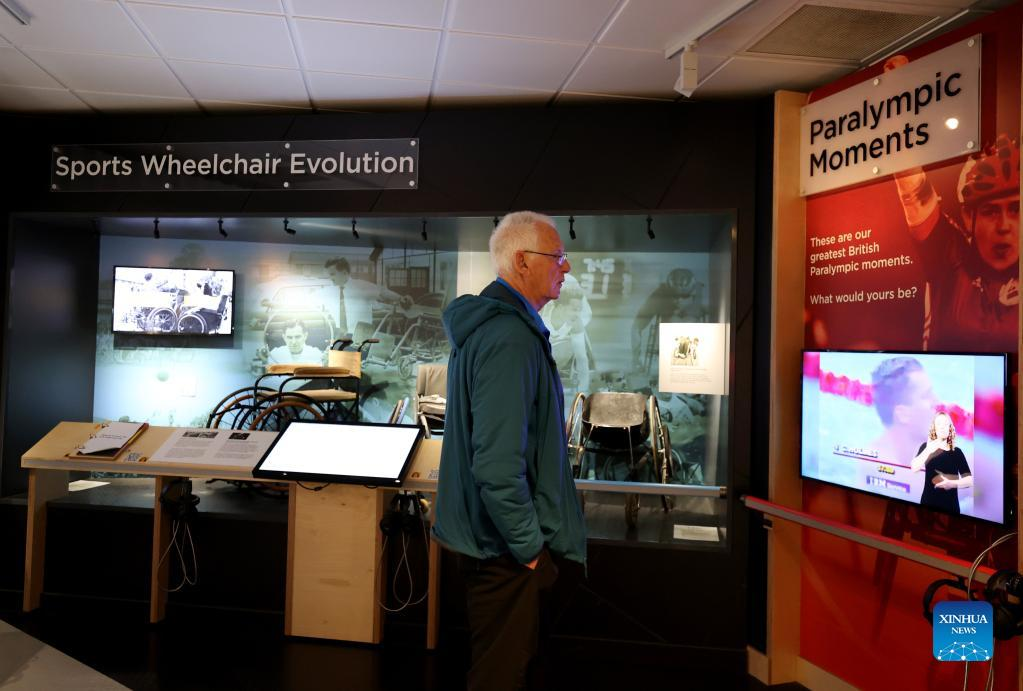
Photo taken on Feb. 24, 2022 shows a man visiting National Paralympic Heritage Center in Stoke Mandeville Stadium in Stoke Mandeville, Britain. (Xinhua/Li Ying)
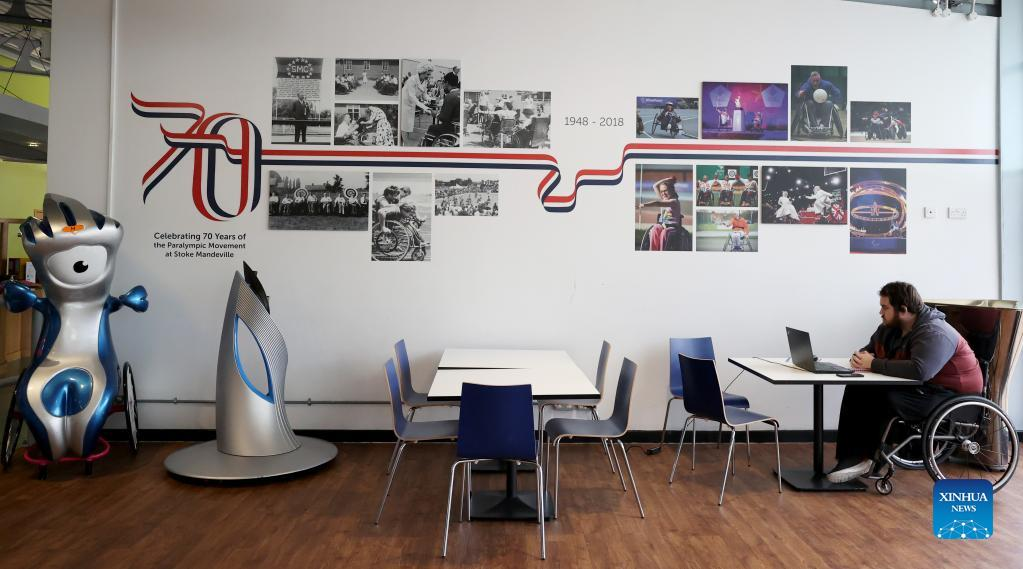
A man sits in a wheelchair next to an exhibition celebrating 70 years of Paralympic movement in Stock Mandeville Stadium in Stoke Mandeville, Britain, Feb. 24, 2022. (Xinhua/Li Ying)

A man watches an exhibition celebriting 70 years of Paralympic movement in Stock Mandeville Stadium in Stoke Mandeville, Britain, Feb. 24, 2022. (Xinhua/Li Ying)
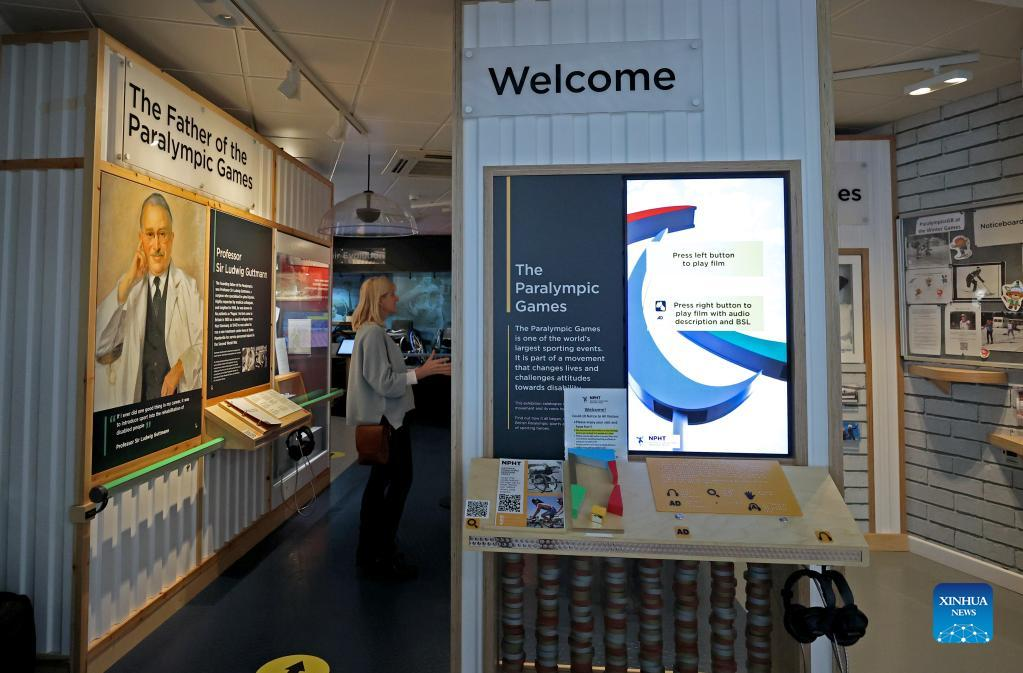
Photo taken on Feb. 24, 2022 shows a view of National Paralympic Heritage Center in Stoke Mandeville Stadium in Stoke Mandeville, Britain. (Xinhua/Li Ying)

A man walks outside of Stock Mandeville Stadium in Stoke Mandeville, Britain, Feb. 24, 2022. (Xinhua/Li Ying)
Undated photo shows an Archery competition held in Stoke Mandeville, Britain, in 1848. (WheelPower/Handout via Xinhua)
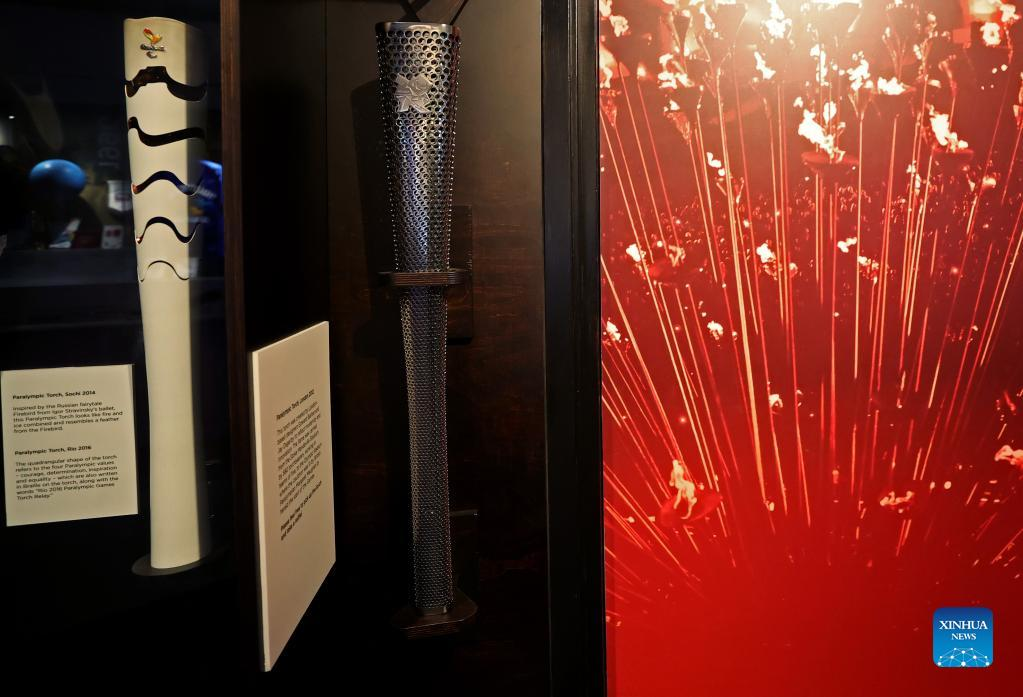
Photo taken on Feb. 24, 2022 shows 2016 Rio Paralymic Torch (L) and 2012 London Paralympic Torch at National Paralympic Heritage Center in Stoke Mandeville Stadium in Stoke Mandeville, Britain. (Xinhua/Li Ying)
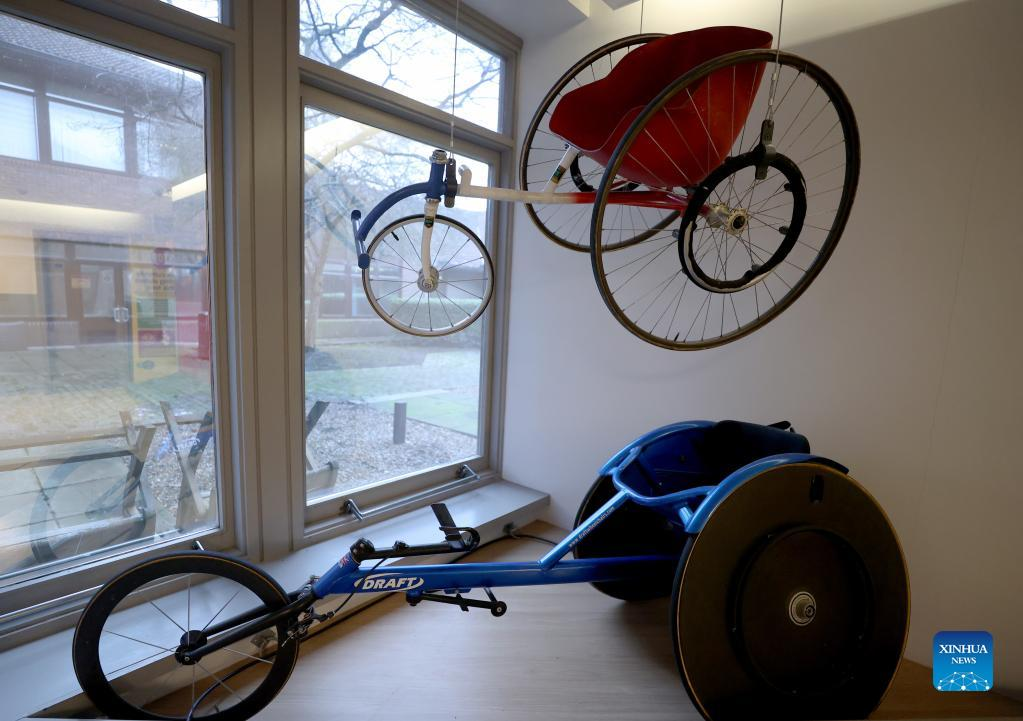
Photo taken on Feb. 24, 2022 shows wheelchairs at Stoke Mandeville Hospital in Stoke Mandeville, Britain, Feb. 24, 2022. (Xinhua/Li Ying)
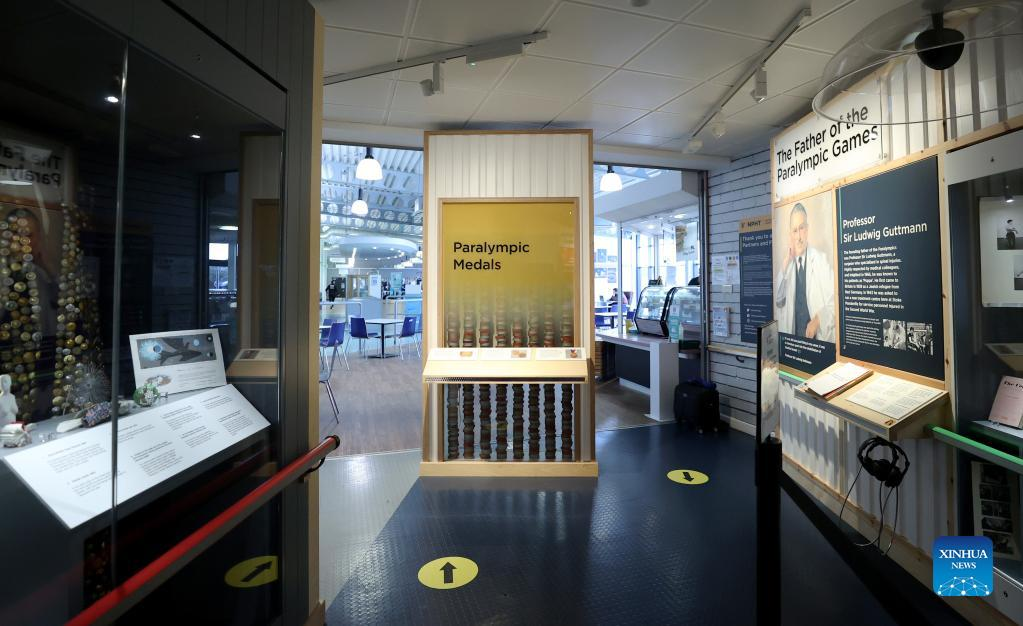
Photo taken on Feb. 24, 2022 shows a view of National Paralympic Heritage Center in Stoke Mandeville Stadium in Stoke Mandeville, Britain. (Xinhua/Li Ying)
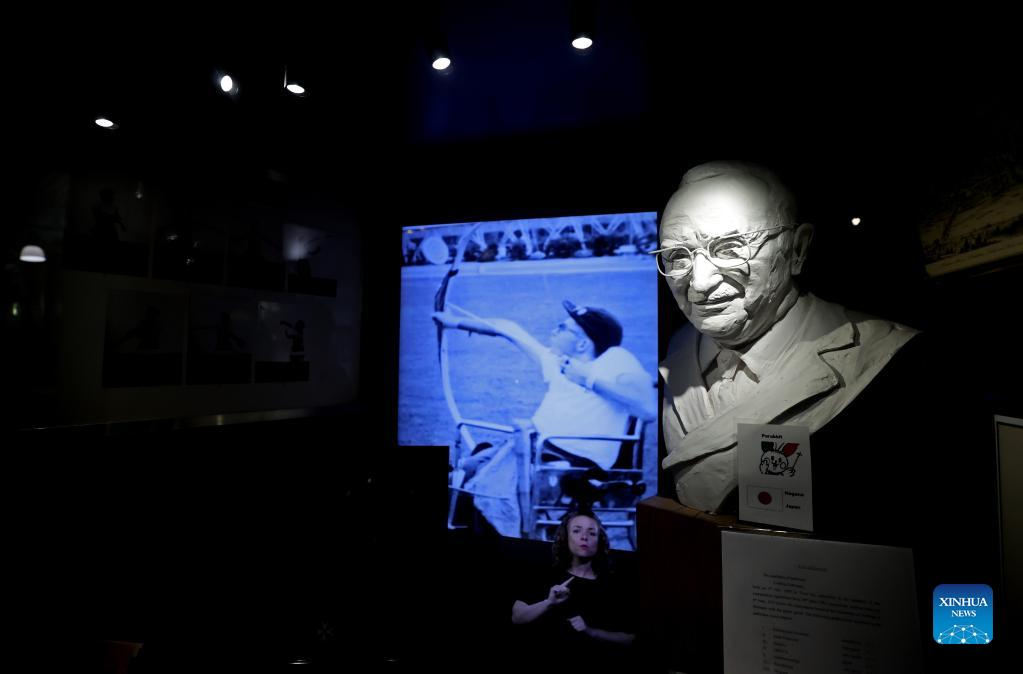
Photo taken on Feb. 24, 2022 shows a sculpture of Dr. Ludwig Guttmann at National Paralympic Heritage Center in Stoke Mandeville Stadium in Stoke Mandeville, Britain. (Xinhua/Li Ying)

Photo taken on Feb. 24, 2022 shows a piece of meadow near Stoke Mandeville Hospital in Stoke Mandeville, Britain, Feb. 24, 2022. (Xinhua/Li Ying)

Photo taken on Feb. 24, 2022 shows an album at National Paralympic Heritage Center in Stoke Mandeville Stadium in Stoke Mandeville, Britain. (Xinhua/Li Ying)
It's hard to imagine how miserable it could be if someone was paralyzed during the 1940s as the life expectancy for him or her was no more than two years.
Even if the British government asked Guttmann to establish a Spinal Injuries Unit at the Stoke Mandeville Hospital in 1943, they were just hoping that those soldiers and civilians injured during World War II could live more comfortably in their remaining days.
However, Guttmann had his own ideas about life expectancy and insisted on the treatment and rehabilitation in his way, which included sports. The patients under his care began playing bowls on wheelchairs with broomsticks on the ward, then an archery competition on the very day of the opening ceremony of the 1948 London Olympic Games.
Since then the Stoke Mandeville Games was held annually with more events and more participants and the arrival of a team from the Netherlands promoted the Games to an international level.
Twelve years later, the Mandeville originated Games was held abroad for the first time and was in the Olympics venue immediately after the Olympic Games. The 1960 Games in Rome was then recognized as the first Paralympic Games.
"To me, the Games is determination, inspiration, courage and quality," said Hope-Walker at the entrance of the National Paralympic Heritage Centre where a small collection is displayed to tell people the birth and movement of Paralympics.
Hope-Walker also believed that Guttmann's vision of the Paralympic Games has a more in-depth impact on society.
"Whatever your ability, not just related to disability, whatever your color, whatever your race, whatever your ability, we are all entitled and equal to things in life. We are all equal members of society."
After the 2008 Paralympics, Beijing will once again become the center stage of the Paralympic movement as the Winter Games is going to be held from March 4 to 13.
"It's certainly part of the purpose of the Games to make that happen, to make people rethink. And I think certainly when the Games goes on and in the lead up to it when it happens and afterward, there is generally nowadays role shift in thinking," said Hope-Walker.
"But then it still takes investment and our governments to kind of work and to continue that work, to make sure positivity and the attitudes are still challenged and still changed." ■
